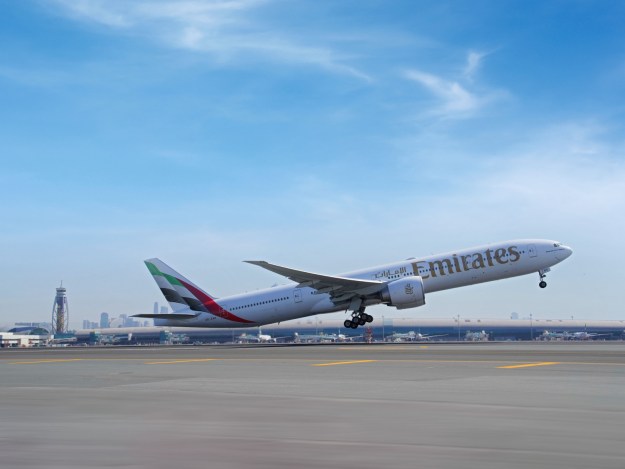
Are you dreaming of taking to the skies and becoming a pilot? If so, you may be wondering how to choose the best flight school to help you achieve your goals. With so many options out there, it can feel overwhelming to know where to start. But fear not, because in this article, we’ll break down everything you need to consider when choosing the best flight school for you.
First and foremost, it’s important to research different flight schools to find the right fit for your needs. Consider factors such as location, cost, and reputation. Are you willing to relocate to attend a prestigious school, or do you prefer a more local option? How much can you afford to invest in your pilot training? Checking online reviews and talking to current and former students can also give you valuable insights into the reputation and quality of a flight school. By learning more about the different flight schools available, you’ll be able to make an informed decision and embark on your journey to the skies with confidence. So, let’s dive in and explore the world of flight schools together!
Understanding Flight Schools
Choosing the right flight school is an important decision for aspiring pilots. Whether you dream of flying commercial airliners or operating private aircraft, the flight school you choose will play a significant role in your aviation career. This article will help you understand the different types of flight schools and highlight the factors you should consider when making your decision.

Different types of flight schools
Flight schools come in various forms and cater to different types of aviation careers. Some of the common types of flight schools include:
-
Part 61 Schools: These flight schools operate under the guidelines of Federal Aviation Administration (FAA) Part 61 regulations. They offer more flexibility in terms of training schedules and course completion requirements.
-
Part 141 Schools: Part 141 flight schools must adhere to stricter regulations and follow a structured training curriculum approved by the FAA. They are required to meet specific training hours and provide more detailed documentation of the training process.
-
College or University Flight Programs: Many colleges and universities offer flight programs as part of their curriculum. These programs often award degrees alongside flight training, providing a well-rounded education for aspiring pilots.
-
Independent Flight Schools: Independent flight schools are privately owned and not affiliated with any specific college or university. These schools offer a variety of training programs and are often more flexible in terms of scheduling.
Understanding the different types of flight schools will help you narrow down your options and choose the one that aligns with your goals and preferences.
The importance of choosing the right flight school
Choosing the right flight school can significantly impact your aviation career. Here are a few reasons why selecting the best flight school is crucial:
-
Quality of training: The quality of training you receive is directly correlated to the flight school you choose. A reputable flight school will have experienced instructors, well-maintained aircraft, and up-to-date training resources, ensuring that you receive the best education possible.
-
Safety and regulatory compliance: Flight schools must adhere to strict safety guidelines and regulations set by the FAA. Choosing a flight school with a good safety record and a strong emphasis on compliance will ensure that you receive training in a safe and disciplined environment.
-
Career opportunities: Some flight schools have established relationships with airlines and aviation companies, offering better job placement opportunities for their graduates. Choosing a flight school with a strong network and a track record of successful career placement can give you a head start in the competitive aviation industry.
Now that you understand the importance of choosing the right flight school, let’s explore the factors you should consider when making your decision.
Factors to Consider
When choosing a flight school, it’s essential to evaluate several factors to ensure that it meets your needs and expectations. Here are some key factors to consider:
Location and proximity
Consider the location of the flight school and how easily accessible it is for you. If you have to commute long distances, it may lead to added stress and affect your training schedule. Additionally, research the weather patterns in the area to understand how it may impact your training.
Accreditation and certifications
Look for flight schools that are accredited by a reputable aviation organization. Accreditation ensures that the school meets specific standards of quality and professionalism. Additionally, check if the flight school holds certifications from the FAA or other regulatory bodies, demonstrating their commitment to safety and compliance.
Instructors’ qualifications and experience
The qualifications and experience of the instructors can greatly influence the quality of your training. Research the background of the flight school’s instructors to ensure that they are well-trained, experienced, and have the necessary certifications. Experienced instructors can provide valuable insights and mentorship throughout your training.
Curriculum and training methods
Evaluate the flight school’s curriculum and training methods to ensure they align with your learning style and goals. Does the school offer a structured training program? Do they use modern training techniques and resources, such as simulators? Understanding the curriculum and training methods will give you an idea of what to expect during your training.
Cost and Financial Assistance
Cost is a significant factor when choosing a flight school, as training to become a pilot can be expensive. Here are some considerations regarding the cost and financial assistance options:
Tuition fees and additional expenses
Inquire about the flight school’s tuition fees and any additional expenses, such as aircraft rental fees and training materials. Compare these costs with other flight schools to ensure you’re getting a fair deal. Additionally, factor in the cost of living if you plan to relocate for your training.
Availability of scholarships and grants
Research if the flight school offers any scholarships or grants to help ease the financial burden. Many organizations and aviation associations provide financial aid to aspiring pilots. Explore these opportunities and apply for any relevant scholarships or grants that you qualify for.
Student loan options
Look into student loan options if you require financial assistance to cover your training expenses. Research different loan providers and compare their interest rates and repayment terms. It’s crucial to thoroughly understand the terms and conditions of any loan before committing to it.

Facilities and Resources
The facilities and resources provided by a flight school can greatly impact your training experience. Consider the following factors:
Aircraft fleet and maintenance
Find out the size of the flight school’s aircraft fleet and the age and condition of the aircraft they use for training. A well-maintained fleet reflects the flight school’s commitment to safety and reliability. Additionally, inquire about the availability of aircraft for training to ensure that you won’t face unnecessary delays.
Simulator technology and availability
Flight simulators play a crucial role in pilot training, allowing students to practice various flight scenarios in a controlled environment. Inquire about the flight school’s simulator technology and how accessible it is to students. Proximity to a simulator can enhance your training experience and save you both time and money.
Library and study resources
The availability of a well-equipped library and study resources can greatly enhance your learning experience. Check if the flight school has a dedicated library with aviation books, manuals, and online resources. Having access to these resources will provide valuable support during your training.
Safety and Regulatory Compliance
Ensuring that a flight school adheres to safety guidelines and regulatory compliance is crucial for your own well-being and the quality of education you receive. Consider the following factors:
Safety record and incident reporting
Research the flight school’s safety record and if they have had any significant incidents or accidents. Pay attention to how the school handles incident reporting and if they have a robust safety management system in place. A flight school with a strong safety culture is more likely to provide a safe and secure training environment.
Adherence to FAA regulations and guidelines
Verify that the flight school follows all FAA regulations and guidelines. Compliance with these regulations showcases the school’s commitment to maintaining high-quality standards and upholding aviation safety. You can check the FAA’s website for any reported violations or complaints against the flight school.
Emergency preparedness and procedures
Evaluate the flight school’s emergency preparedness and procedures. Inquire about their emergency response plan and how they train students to handle unforeseen situations. A flight school that prioritizes emergency preparedness will equip you with the necessary skills to handle emergencies during your aviation career.
Student Support Services
Flight schools that provide robust student support services can greatly enhance your training experience. Consider the following factors:
Career counseling and job placement assistance
Flight schools that offer career counseling and job placement assistance can significantly ease your transition from training to employment. Inquire about the flight school’s track record in placing graduates into aviation careers and the resources they provide to help students develop strong resumes and job interview skills.
Mentorship and networking opportunities
Having access to experienced mentors and networking opportunities can provide invaluable guidance and support during your training. Check if the flight school offers mentorship programs and connects students with industry professionals. The relationships you develop during your training can open doors to future career opportunities.
Student organizations and extracurricular activities
Participating in student organizations and extracurricular activities can enhance your overall flight school experience. Inquire about the flight school’s student organizations, such as aviation clubs or honor societies. Engaging in these activities allows you to connect with fellow aviation enthusiasts and broaden your knowledge beyond the classroom.
Reviews and Reputation
Researching the reputation of a flight school is crucial as it offers insights into the experiences of past and current students. Consider the following factors:
Online reviews and testimonials
Search for online reviews and testimonials about the flight school. Websites like Google, Yelp, or aviation forums often have reviews from students and alumni. Read through these reviews to get a sense of the school’s strengths and weaknesses and the overall satisfaction of students.
Alumni success stories
Check if the flight school showcases success stories of their alumni. Alumni success stories can give you a glimpse into the career paths of graduates and the reputation of the flight school within the industry. Successful alumni indicate that the flight school provides quality education and effectively prepares students for their aviation careers.
Word-of-mouth recommendations
Reach out to pilots or aviation professionals you know and ask for their recommendations. Word-of-mouth recommendations offer firsthand insights into the quality of training and the reputation of different flight schools. Personal recommendations can be particularly valuable in guiding your decision-making process.
Visiting the Flight School
Once you have shortlisted a few flight schools based on your research, plan a campus visit to get a firsthand experience of the school. Consider the following steps:
Scheduling a campus visit
Contact the flight schools you are interested in and schedule a campus visit. Coordinate with the admissions department to find a date and time that works for you. Visiting the campus will allow you to observe the training environment and interact with instructors and staff.
Meeting with instructors and staff
During your campus visit, make an effort to meet with instructors and staff members. Ask questions about their training philosophy, experience, and the resources available to students. Interacting with instructors and staff will provide insights into the school’s culture and their commitment to student success.
Touring the facilities and aircraft
Take a tour of the flight school’s facilities and aircraft. Observe the condition of the classrooms, training areas, and hangars. Pay attention to the cleanliness and organization of the facilities, as it reflects the flight school’s attention to detail and professionalism. If possible, request to see the aircraft you will be training on to assess their condition and maintenance standards.
Comparing and Shortlisting
After visiting the flight schools and gathering all the necessary information, it’s time to compare your options and create a shortlist. Consider the following steps:
Creating a pros and cons list
List the pros and cons of each flight school based on the factors that are most important to you. Consider factors such as cost, location, curriculum, resources, and support services. Creating a pros and cons list will help you evaluate each school objectively and make an informed decision.
Researching multiple flight schools
Research multiple flight schools to ensure that you have a broad understanding of the options available. Look beyond the first few schools you come across and explore different regions and training programs. The more options you consider, the better chance you have of finding the best fit for your aviation career goals.
Making informed decisions
After considering all the factors and comparing different flight schools, make an informed decision based on your personalized criteria. Remember that the best flight school for someone else may not necessarily be the best fit for you. Trust your research and instincts in selecting the flight school that aligns with your goals, preferences, and budget.
Conclusion
Choosing the best flight school is a crucial step for aspiring pilots. The decision can have a profound impact on the quality of your training, your career opportunities, and your overall satisfaction as a pilot. By considering factors such as location, accreditation, instructors’ qualifications, cost, facilities, safety, student support services, reputation, and visiting the flight school, you can make an informed decision that sets you on a path to a successful aviation career. Take the time to evaluate your options and choose the flight school that best aligns with your professional aspirations.


Leave a Reply